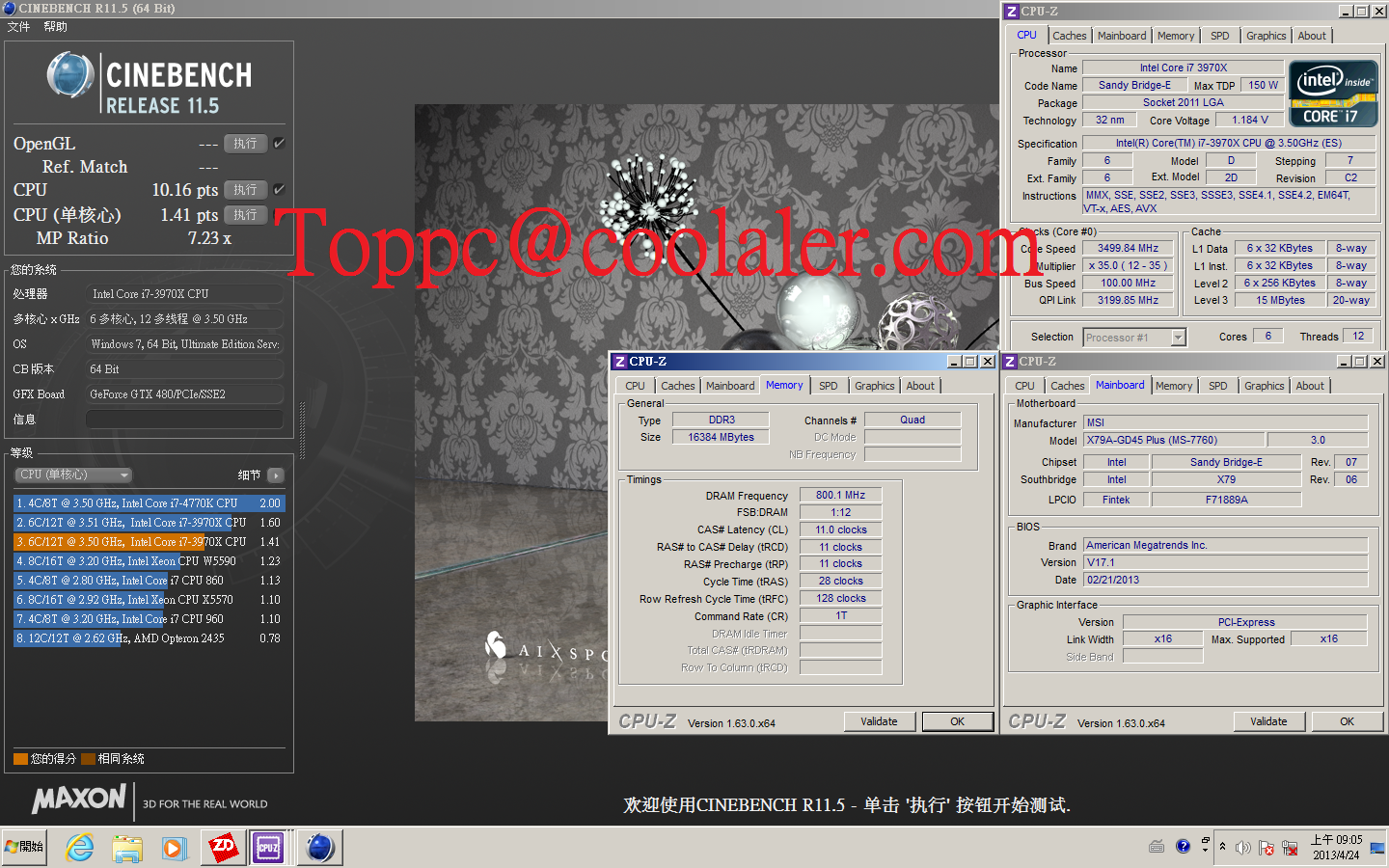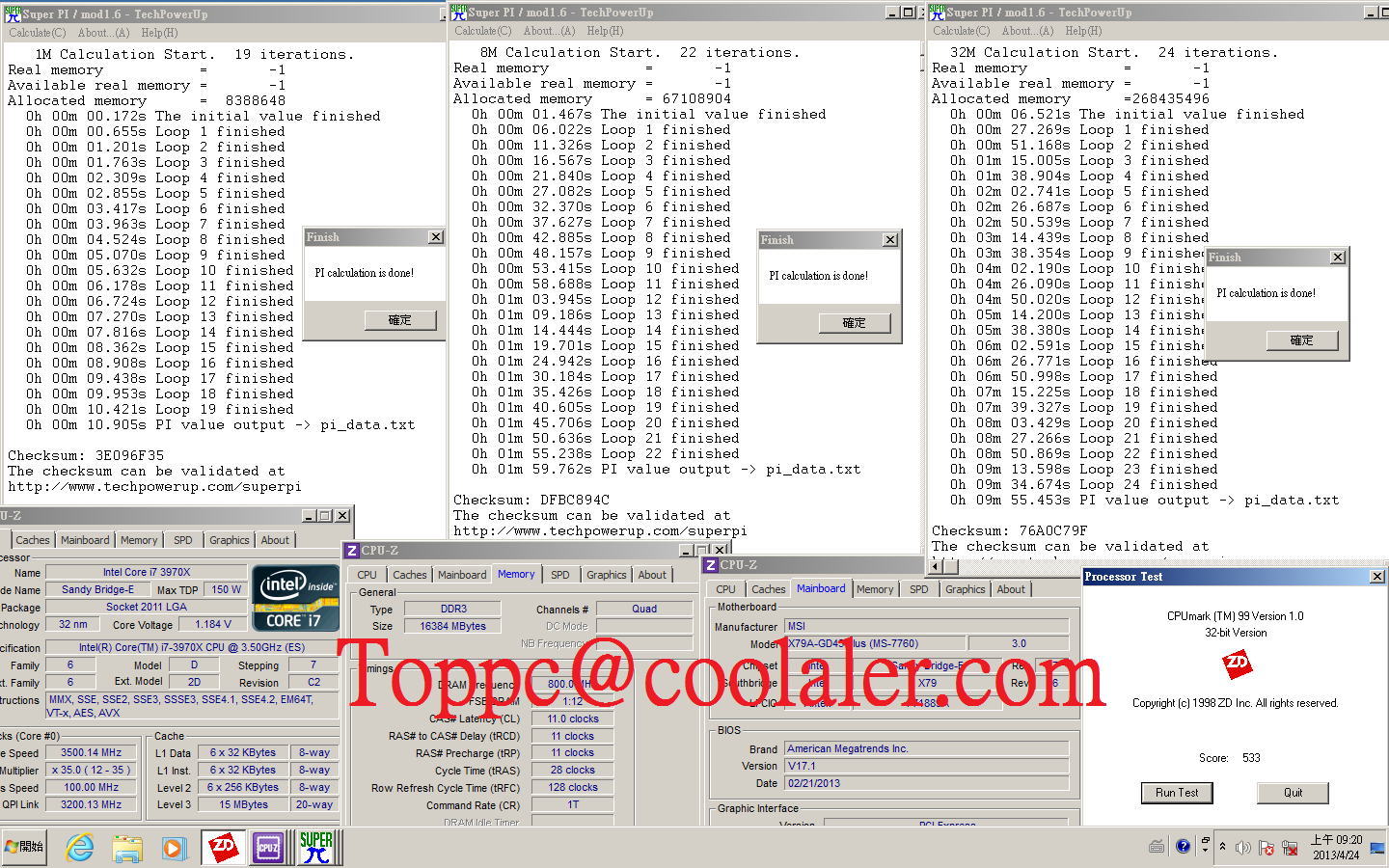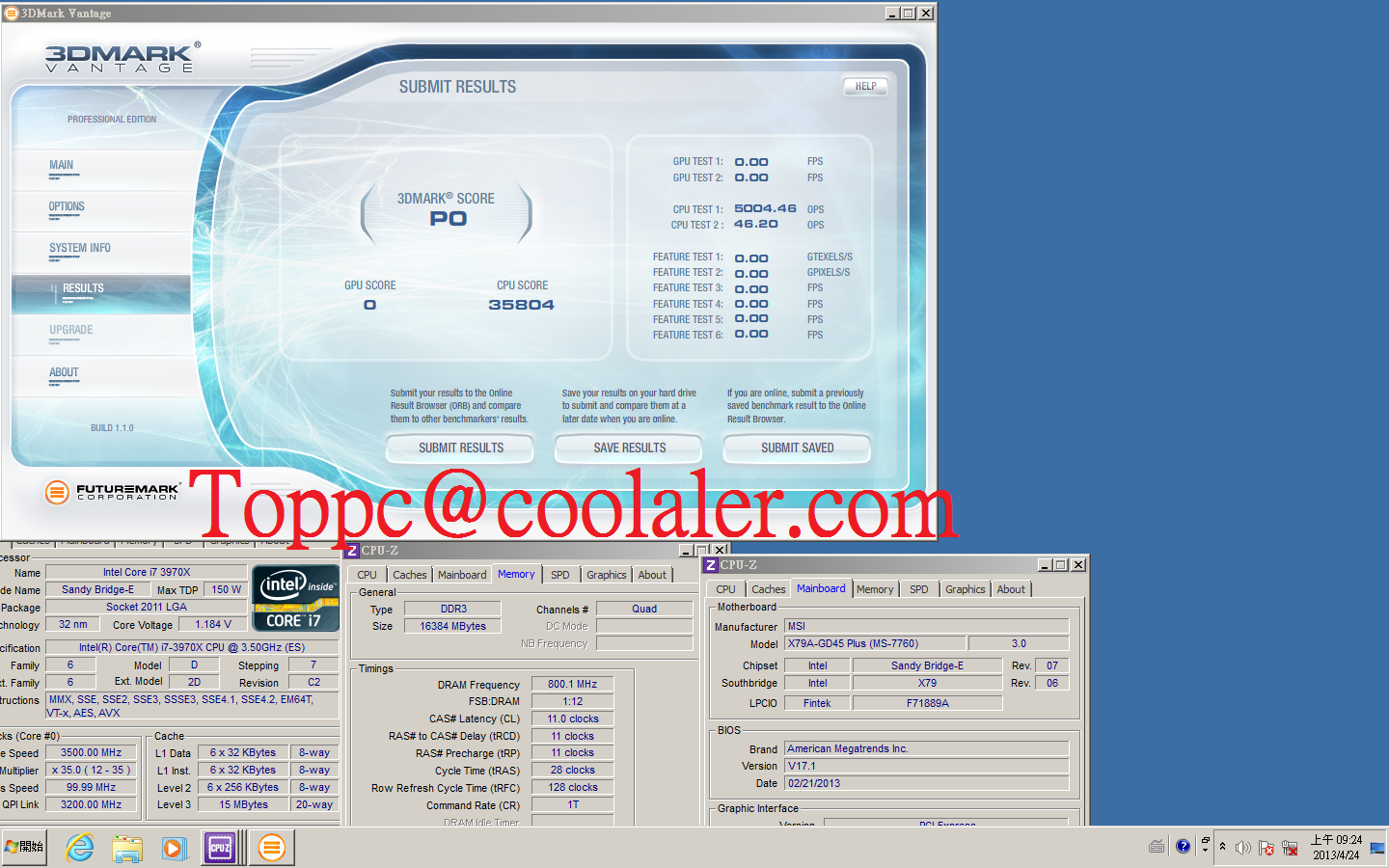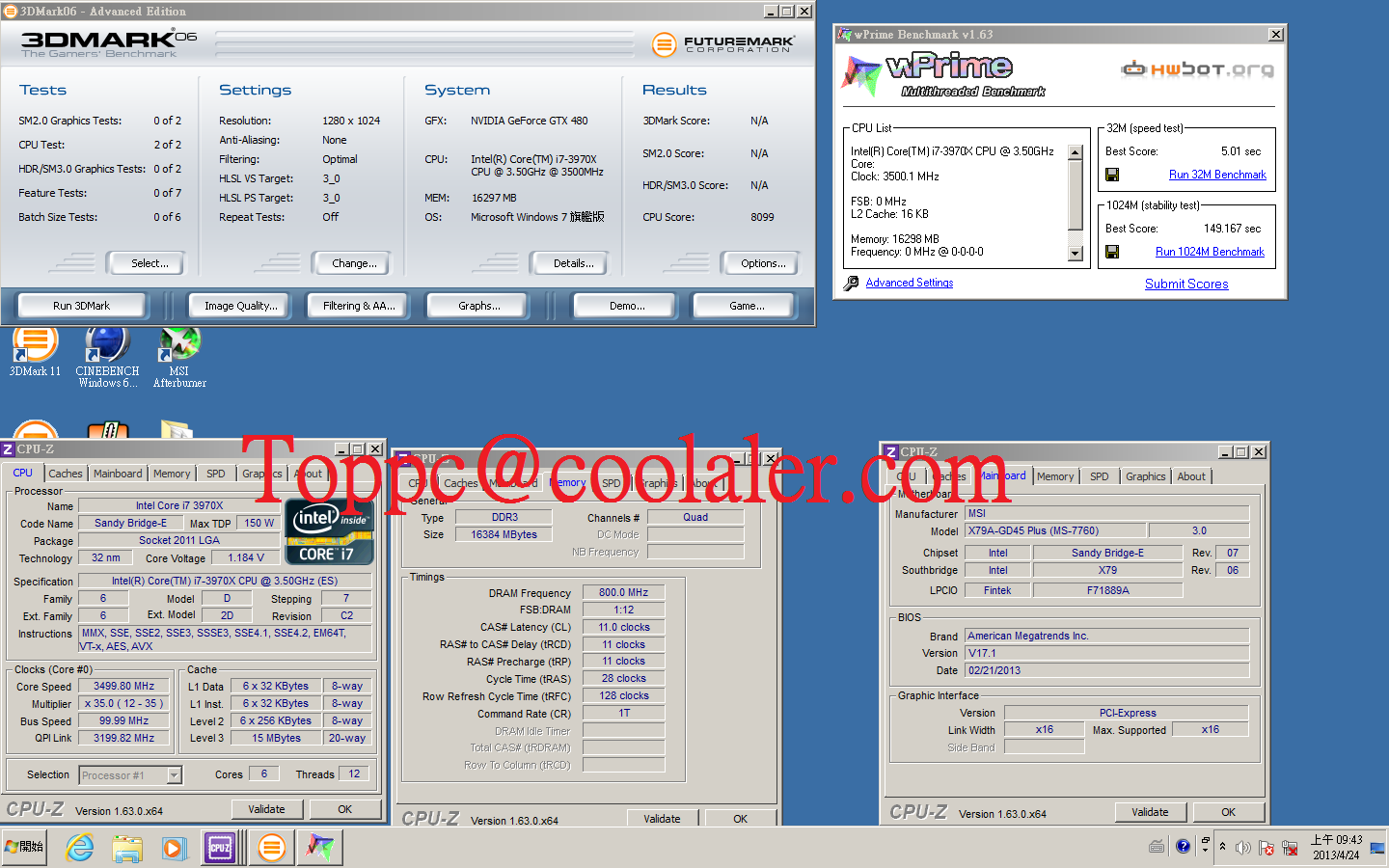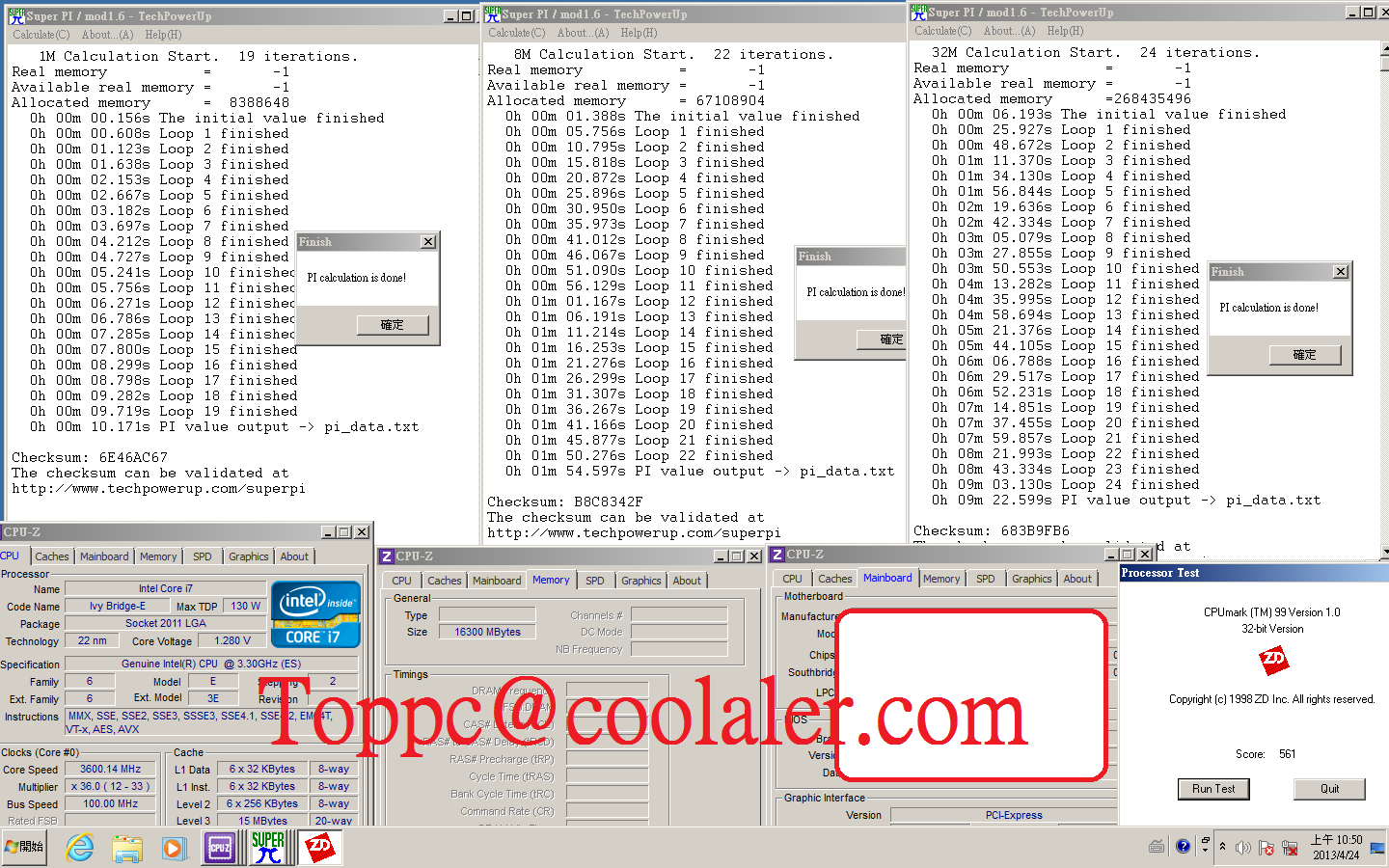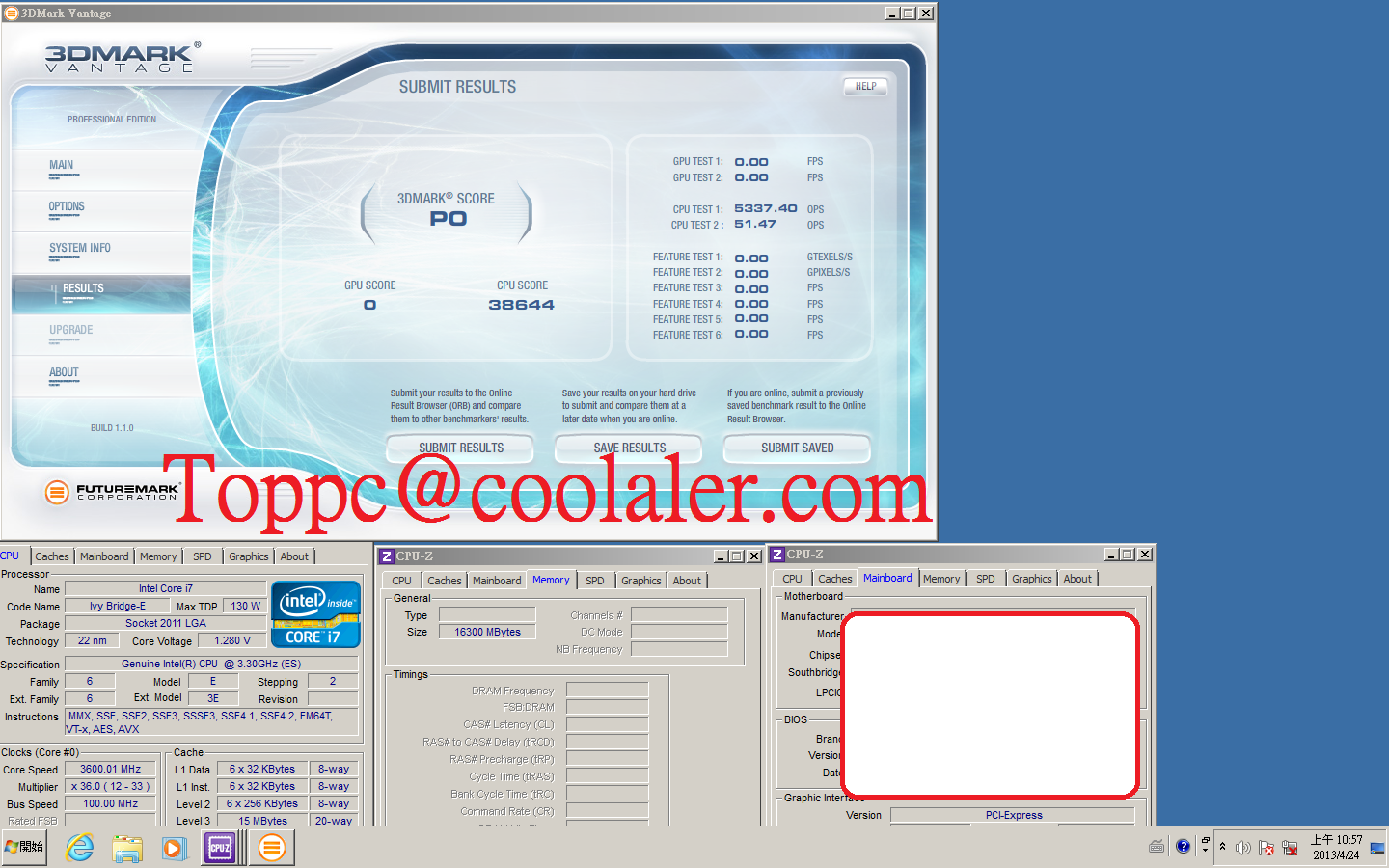Unofficial Benchmarks Show Intel Core i7-4960X Ivy Bridge-E Performing 10% Faster Than i7-3970X
Based on very early benchmarks, the upcoming Intel Core i7-4960 Ivy Bridge-E processors will deliver 5 percent to 10 percent better performance than their Sandy Bridge-E predecessor.
Coolaler.com user “Toppc” has posted some initial benchmarks comparing a Core i7-3970X Sandy Bridge-E to an engineering sample of an i7 Ivy Bridge-E configured to match the upcoming Core i7-4960X processor.
Using Toppc's system configuration (tabulated below), the i7-4960X performed 5 percent to 10 percent better across the board than its Sandy Bridge-E predecessor. Specifically, the i7-4960X scored 10.94 points in CineBench vs. i7-3970X's 10.16 points, 561 vs. 533 points in CPU Mark, 38,644 vs. 35,804 in 3D Mark Vantage, and in WPrime it crunched 32 M in 4.601s vs. 5.01s for the i7-3970X.
| Header Cell - Column 0 | Sandy Bridge-E | Ivy Bridge-E |
|---|---|---|
| CPU | Core i7-3970X | Core i7-4960X Equivalent |
| CPU Clock | 3.50 GHz (Base) / 4.00 GHz (Turbo) | 3.50 GHz (Base) / 4.00 GHz (Turbo) |
| Motherboard | MSI X79A-GD45 Plus | MSI X79A-GD45 Plus |
| RAM | 16 GB DDR3 | 16 GB DDR3 |
| GPU | GeForce GTX 480 | GeForce GTX 480 |
We can’t say we’re surprised to see these results and are certainly looking forward to Intel’s next generation of CPUs. Screenshots from the benchmarks are available below.
Get Tom's Hardware's best news and in-depth reviews, straight to your inbox.
Tarun Iyer was a contributor for Tom's Hardware who wrote news covering a wide range of technology topics, including processors, graphics cards, cooling systems, and computer peripherals. He also covered tech trends such as the development of adaptive all-in-one PCs.
-
powerincarnate All that time for 10%, that sucks. It's been 2 years since Sandy Bridge E came out.Reply -
vmem hopefully they at least fix and update all the mobo issues with Sandy E. I want to upgrade from my OCed 2500K because I'm starting to do some processor heavy work, and it seems that neither 4770k nor 4960X are too interesting atm. should've just bought a 3960x or somethingReply -
InvalidError Reply
What else did you expect? SB to IB only had 5-10% improvement on mainstream LGA1155 chips so it follows naturally that the same would occur on LGA2011.10722041 said:All that time for 10%, that sucks. It's been 2 years since Sandy Bridge E came out.
Based on leaked Haswell numbers, you can expect Haswell-E to be yet another "only ~10%" over IB-E as well.
The majority of cost-effective and power-efficient clock+IPC improvements are tapped out. We will most likely never see the days of 40%/year improvements ever again unless Intel and AMD decide to start a core count war... but such a war is pointless when almost no mainstream software is capable of making meaningful use of it. -
oraygungor If you really compared it, it is not even 10%...Reply
http://img.donanimhaber.com//images/haber/46217/corei74960xxx2_dh_fx57.jpg
-
powerincarnate Well, By the time Ivy Bridge E comes out, it will be two year, that is a long time in processor world. I miss the days of Moore's law of getting like a doubling of performance every 18 months.Reply
I remember having a 500 mhz Pentium3 and then like 2 years later, got an Athlon XP 1600+ and that was like night and day then.
I remember like 2 years later getting an Athlon 64 3200 and that was like night and day compared to the previous one.
I remember going from That to Core 2 due E 6600, and again, that was like night and day.
I remember going from that to Core 2 Quad Q9550, and that was a lot bettter, but more importantly, I didn't go that route, but I remember the folks who went from a Core 2 duo like I had and went to the Core I7 processors, and they had a huge jump.
For me, I took the route of coure 2 quad first, and then went to the Sandy Bridge E 3820, but 2 years is a lot of time, and to only get 5-10% performance then, that sucks.
For the GPU days, 2 years use to be two generation, so again, same huge improvements like for me it was going from Rage card to Radeon 64 DDR, then I had the Radeon 9700 pro,
Then the 8800 GT (nVidia),
then I was stuck because I still had an AGP motherboard,
finally when I switched to the Core 2 Duo, I also got a Radeon 4870, and switched it shortly after for the 5850, and now the 7970.
It seems AMD and Nvidia are both in a rut as well, because the next general is going to be late by 2 years, and I don't have high hopes for the old days of massive gains. -
InvalidError Reply
Moore's law was about transistor count, not performance. The combination of clock rate increases and extra transistors just happened to roughly double performance at a similar rate for about 15 years or so.10722168 said:I miss the days of Moore's law of getting like a doubling of performance every 18 months.
The clock rate part of the performance gain equation hit a brick wall almost a decade ago with the market shift towards power-efficiency while the transistor count is mostly driven by IGP and cache these days because there are few other cost-effective uses for the growing transistor budget on mainstream CPUs.
Unless mainstream software starts actually using multi-core CPUs, even transistor counts may end up brick-walled by lack of software to justify it in the mainstream market. -
I know its a CPU benchmark but a GTX 480 in the test run, really? This won't be worth an upgrade over Ivy but for those of us that are on 2 year old cpus (2600k) like me it should be.Reply
-
warezme Isn't 10% considered within the margin of error so , no change. So sad AMD lost their competitive edge cause now we're stuck with no CPU performance progress.Reply
